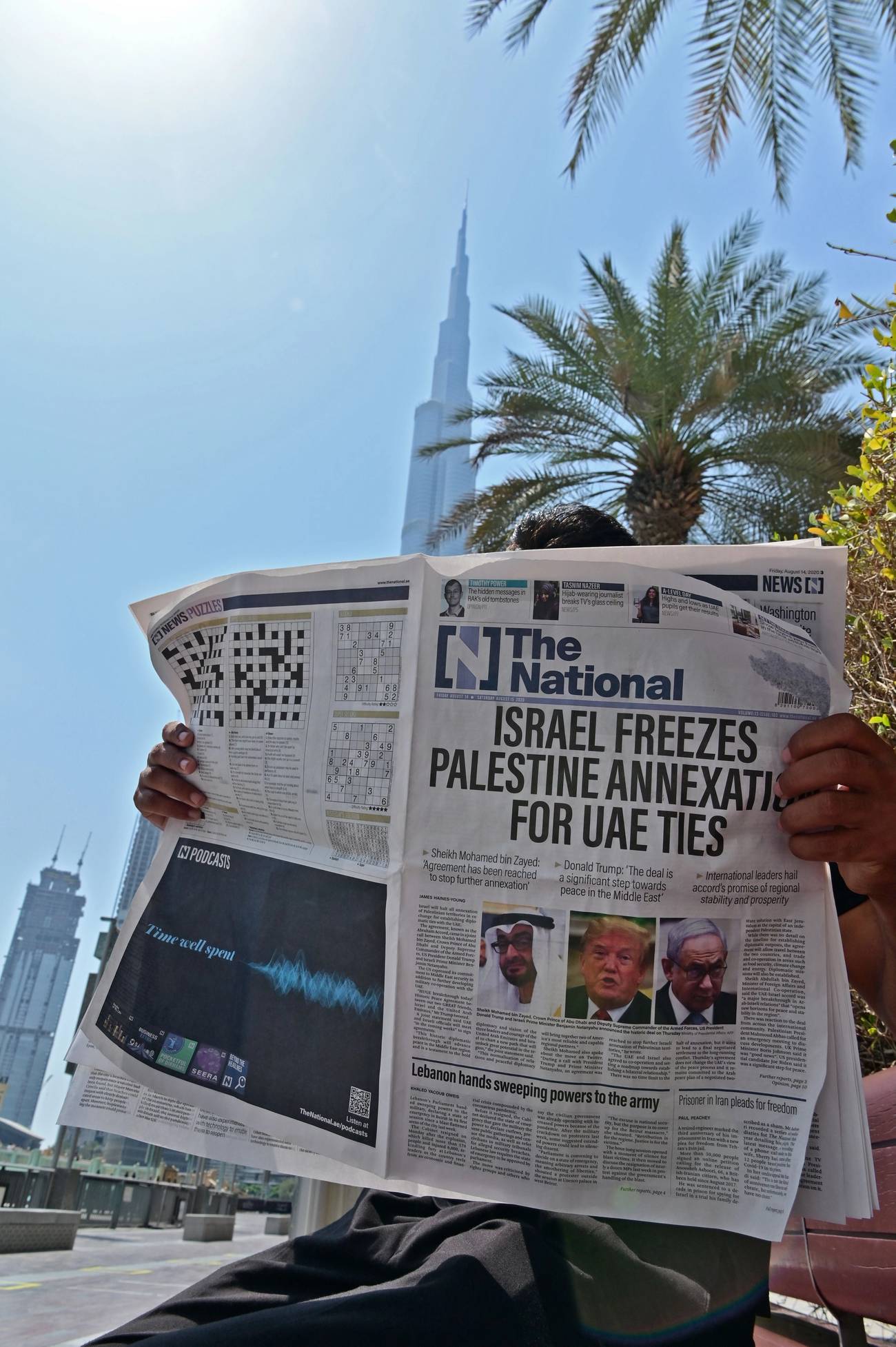Walking Toward the Center of the Seesaw
In light of the Abraham Accord between Israel and the United Arab Emirates, Jews can look for the balance between loyalty to one’s own tribe and forming alliances to address larger issues




In 2018, about 40,000 Jewish Israeli teens visited Auschwitz on trips subsidized by the Israeli government to the tune of 175 million shekels (roughly $51 million). Whenever the COVID-19 pandemic begins to recede, let’s hope they, and their counterparts in Jewish communities around the world, begin visiting the United Arab Emirates as well.
Here’s why: The Abraham Accord announced last week between Israel and the UAE carries the potential to become, like the Holocaust, central to Jewish identity. Whereas European anti-Semitism provided the rationale and urgency for the establishment of the State of Israel, the new agreement renews the meaning of its existence, only this time in its regional context.
I come at the Abraham Accord through a unique lens, having spent the better part of the past decade in the United States, Israel, and the UAE. Serving as a university chaplain at New York University, a global network university with campuses in all three countries, I’ve tended to the diverse spiritual concerns of students, staff, and faculty. Last year, I was appointed the inaugural chief rabbi for the Jewish communities of the Emirates.
Perhaps most importantly, I’m a dad who is married to a school psychologist. Throughout our family stays in the UAE, we can see the impact it has on our young children.
First, being in the UAE forces them to confront their own stereotypes of Arabs formed through thousands of media impressions and two-dimensional retellings of the Arab-Israeli conflict. Meeting Arab peers who are open, hospitable, and intellectually driven defies the falsely constructed image of radicalized, violent, and simple-minded youth.
I introduced my kids to Shamma al-Mazrui, an NYU Abu Dhabi alumna who, at age 22, became the youngest minister of any government in the world. In impeccable English (she speaks four languages fluently), she bluntly outlined some of the challenges youth in the UAE face, including employment challenges and risks of radicalization, and the strategies she sought to implement. Her rapid-fire, razor-sharp brilliance dazzled us. (To be fair, we met her when she was already a seasoned 25-year-old.)
Second, it gets them to look at the map from a completely different vantage point. They come to understand the host of concerns that animate Emirati youth, including the complexity of growing up in a global city while maintaining their culture. They see a country in full growth mode, with buildings rising and institutions budding. They realize that Israel is not the only desert miracle in the Middle East.
One of the highlights of our latest visit was meeting Mohammed al-Mubarak, chairman of the Department of Culture and Tourism in Abu Dhabi, who is overseeing the design and construction of the Abrahamic Family House, a multifaith complex set to open in 2022. Mohammed spoke passionately about the need for people in the region to see clusters of religious buildings together, side-by-side, as a symbol for how people of different faiths can coexist.
Third, they feel oddly at home. Similar aesthetic, cultural, and familial themes resonate with their experiences in Israel. The ubiquity of camel images, the emphasis on entrepreneurship, and radical hospitality are all familiar. They come to realize that people are enabling them to feel welcome, and that the experience of being welcome does not happen on its own.
No one made us feel more at home in Abu Dhabi than Sheikh Nahyan al Nahyan, the minister of tolerance. Sheikh Nahyan was kind enough to receive us at his majlis, a parlor in Arab homes built to receive visitors. His embracing, wise-uncle persona knew just how to speak to teens. “Don’t let your parents take you to only the serious things. Go have fun in Dubai for the weekend.”
The net effect of these three experiences typically prompted the question: So why not have the UAE and Israel work together? Israelis and Emiratis share so many regional concerns and possibilities, and possess complementary resources to address them. In short: the belief in regionalism.
Critics of the Poland trips from within the Jewish educational system argue that the trauma-laden trips have the exact opposite effect: isolationism. According to one educator, the takeaway from the trips, too often, is that “there are no others, only us.”
To be clear, I do believe that it is of dire importance for high school and college students to be Holocaust-literate, preferably with firsthand exposure. And at the same time, I cannot help believing that if we are to optimize the Abraham Accord, we need to somehow walk toward the center of a seesaw and look for the balance between loyalty to one’s own tribe and forming alliances to address larger issues.
The announcement of the accord prompted a flurry of activity among businesspeople, investors, and entrepreneurs. Let’s not forget the youth. After all, aren’t they the ones who are ultimately responsible for holding up the tent of Abraham?
Rabbi Yehuda Sarna serves as the Executive Director of the Bronfman Center for Jewish Student Life at NYU, and as Chief Rabbi for the Jewish communities of the Emirates.